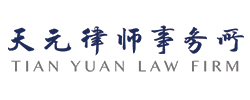As one of the most common “valuation adjustment” clauses used by investors, equity buyback clauses have been widely applied in the practice of private equity investment.

Partner
Tian Yuan Law Firm
Tel: +86 138 1041 7260
E-mail: chenzhuo@tylaw.com.cn
The Minutes of the National Courts’ Civil and Commercial Trial Work Conference provide relatively clear guidelines on determining the validity of “valuation adjustment mechanisms”, including equity buyback clauses.
But exercising the right to demand buyback of equity after term expiration has become a new point of contention in the performance of value adjustment mechanisms.
As there is so far no consensus on how to determine the exercise period for equity buyback, investors need to carefully design relevant provisions to avoid unnecessary obstacles in judicial practice when applying the equity buyback clause as a divestment tool.
BUYBACK CLAUSES
Buyback clauses usually: (1) set a limit on the investor’s exercise period, i.e. accord the investor the right to demand a buyback within a certain period of time, or require the investor to give buyback notification within a certain period of time; (2) set a limit on the performance term of the party effecting the buyback, i.e. requiring the party to buy back equity held by the investor within a certain period of time; and (3) do not set any time limits, but in broad terms, accord the investor the right to demand the obligor to buy back equity.

Associate
Tian Yuan Law Firm
Tel: +86 175 0109 2672
E-mail: wangyiheng@tylaw.com.cn
In practice, in the first of those scenarios, arbitral tribunals and courts will generally respect the autonomy of parties and directly apply the time limit specified in the buyback clause.
When an investor demands an equity buyback after expiration of the specified exercise period, certain courts have held that the investor lost the right to demand the buyback, while others decided the investor has not forfeited its right on the grounds that a waiver of rights requires an express statement to such an effect, and that the purpose of a buyback time limit is to urge exercise of the right, rather than limit it or deprive the right of exercise.
In the other two scenarios, it is necessary to determine the nature of the equity buyback clause to then determine the exercise period for the right to demand a buyback.
DEBATE ON NATURE
The issue of the nature of the share repurchase rights has always been debatable. At present in judicial practice, there are two major views on the nature of equity buyback clauses.
The first perspective, endorsed by most courts, holds that an equity buyback clause constitutes a right of claim. The equity buyback right arises on the basis of the contract between the parties, and requires the obligor to co-operate in payment of the equity transfer monies, therefore does not satisfy features of a right of formation.
Additionally, certain courts have held that an equity buyback clause constitutes a conditional equity transfer clause and, once the conditions are satisfied, the investor has a right to claim and can demand the other party buys back the equity and pays the monies.
But this perspective blurs the line between the essence of the right to demand an equity buyback and the legal consequences of its exercise.
Although the right to demand buyback includes in essence the act of transaction – in other words, the equity transfer – the legal consequences of the exercise nevertheless still arise from the unilateral expression of the investor’s intent.
Furthermore, if the right to demand a buyback is deemed a conditional equity transfer act, the equity transfer would become effective immediately after the conditions are satisfied. At such a time, the investor would have no right to choose whether to demand the buyback by the obligor, essentially depriving the investor of the right to choose whether and when to have the equity bought back.
The second perspective holds that the right to demand a buyback of equity constitutes a right of intentional formation. Courts in support of this perspective have held that once the conditions pertaining to the right to demand an equity buyback are satisfied, the investor has the right to decide with a unilateral expression of intent whether the buyback will take place, which constitutes the core feature of the right of formation.
To demonstrate the nature of the right to demand an equity buyback, certain courts have likened it to the effect of the right of rescission.
Once the right to demand an equity buyback is successfully exercised, the investor would withdraw from the target company and lose its shareholder status, essentially rescinding the investment agreement between the investor and the target company. Accordingly, an equity buyback is a right of formation.
The main reasoning opposing this perspective is that an equity buyback requires a transfer of equity between the investor and obligor to effect the buyback. If the latter fails to co-operate in effecting the transfer, there can be no legal relationship, nor effect, of an equity transfer by solely relying on the unilateral expression of investor intent.
NO EXPRESS PROVISIONS
As mentioned, if there is no agreement on the exercise period, the term would be determined by analysing the nature of the right to demand an equity buyback. If an equity buyback is deemed a claim, the court will generally apply the prescriptive period to determine whether the investor has failed to exercise its right within the allotted time.
Given that the exercise period or performance term is not expressly specified in the contract, the court will generally find that the investor can demand performance from the obligor at any time, and the prescriptive period begins from when the obligor expressly refuses to perform its obligation, or the period for performance of the obligation expires.
If it is deemed that an equity buyback is a right of formation – as the right to demand does not constitute a statutory right of formation, and there is no express legal provision specifying its duration – certain courts have applied the cut-off period similar to the right of rescission.
Others have determined a reasonable exercise period by comprehensively considering characteristics of the operation, management of the company, changes in the value of equity, the objective of the contract and other such factors.
Chen Zhuo is a partner at Tian Yuan Law Firm. He can be contacted at +86 138 1041 7260 or by e-mail at chenzhuo@tylaw.com.cn
Leslie Wang is an associate at Tian Yuan Law Firm. She can be contacted by phone at +86 175 0109 2672 or by email at wangyiheng@tylaw.com.cn
10/F, Tower B
China Pacific Insurance Plaza
28 Fengsheng Hutong
Beijing 100032, China
Tel: +86 10 5776 3888
Fax: +86 10 5776 3777
www.tylaw.com.cn






















